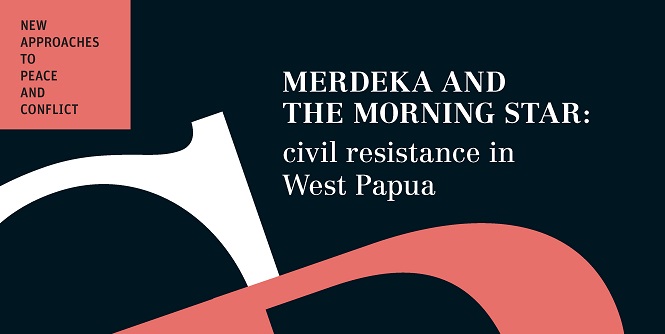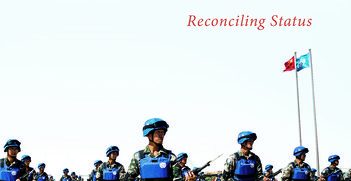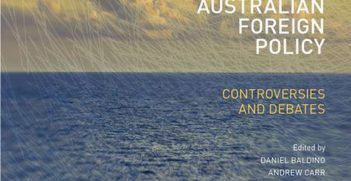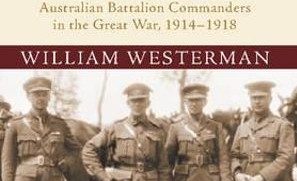Reading Room: Civil Resistance in West Papua

Injustices continue to be perpetrated upon the people of West Papua. Consequently, there continue to be calls by well-meaning outsiders and by West Papuans for West Papua to be given a vote on its political future, as was East Timor in 1999. Yet such calls reflect a limited understanding of West Papua’s internal circumstances, not helped by a continuing effective media blackout imposed on the territory.
Jason MacLeod has worked with West Papua activists for over two decades and has a nuanced understanding of its struggle and circumstances. West Papua was the focus of much of his pre-academic work, his PhD and now his book, Merdeka and the Morning Star: Civil Resistance in West Papua. For anyone wanting to understand West Papua and its resistance movement, this book is the proverbial ‘must read’.
Merdeka and the Morning Star is not least reflective of MacLeod’s commitment to non-violent resistance. It is this aspect that colours the book throughout and reflects a genuine shift in the thinking of most West Papuan leaders.
At one level, this central argument makes sense, given that the West Papuan independence movement is hopelessly outmanned, out-gunned and out-organised by a still too often repressive Indonesian state. Democracy, of a type, and human rights may have come to the rest of Indonesia, but in a way reflecting its late and compelled incorporation into the state, West Papua continues to epitomise Indonesia’s more authoritarian tendencies.
MacLeod explains why, when Indonesia subsumed West Papua, there was resistance to that incorporation. He also explains how the resistance has evolved and ultimately, why it has not been successful. MacLeod might add to my assessment the word ‘yet’.
However MacLeod also illustrates the Indonesian government’s own argument, when faced with the question of why it does not negotiate with the West Papuan independence movement, it says there has not been, until very recently a single organisation with which to have such negotiations.
One would have to be optimistic, as MacLeod is, about the representative capacity of an umbrella body for three major collectives of disparate West Papuan groups. Yet, as this is written, one of the groups under that umbrella is attempting to unilaterally assert its own claim to representation.
Perhaps the key element missing from MacLeod’s otherwise clear analysis is that West Papua is unlikely to achieve the same outcome as East Timor because, despite the profound flaws in how it was incorporated, West Papua is recognised under international law as part of Indonesia. East Timor never was.
MacLeod remains optimistic, however, knowing that while the odds of independence are against it, he believes that positive incremental changes remain possible. This then returns to MacLeod’s support for non-violent resistance.
West Papua’s independent political future does not look bright. However, with people like MacLeod bringing the detail of West Papua’s plight to our attention, suggesting a possible course of resolution and, not least, working to that end, there remains hope.
Jason MacLeod (2015), Merdeka and the Morning Star: Civil Resistance in West Papua. University of Queensland Press, Brisbane.
Damien Kingsbury is Professor of International Politics at Deakin University. He was an accredited observer to East Timor’s vote for independence and helped negotiate a compromise conclusion to Aceh’s claim for independence.





